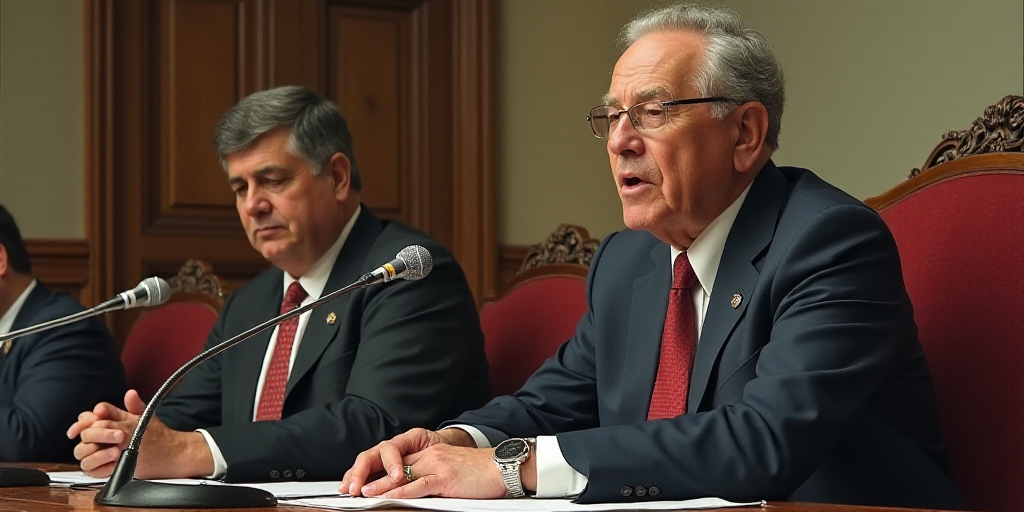Key Players and Context
The ongoing process to approve the Telecommunications and Broadcasting Law has sparked debate, with Senator Luis Armando Melgar Bravo highlighting the need to strike a balance between digital development, fair competition, and media freedom. Melgar Bravo, a member of the PVEM fraction in the legislature, praised President Claudia Sheinbaum Pardo‘s decision to open a discussion and analysis period for the bill, rather than rushing its approval as initially planned.
Senator’s Concerns and Proposed Changes
Melgar Bravo expressed his concerns about the potential consequences of approving the bill in its current form. The proposed Agency for Digital Transformation and Telecommunications (ATDT), which would replace functions of the Federal Institute of Telecommunications (IFT), could unilaterally define mandatory coverage zones without consulting operating companies, potentially forcing them to invest in unprofitable regions.
- The ATDT might assign spectrum to public entities for commercial use without auctions, creating unfair competition against private concessionaires.
- This measure excludes the state from economic competition rules, stemming from a recent constitutional reform.
- It could conflict with the Mexico-US-Canada Agreement (T-MEC), which prohibits favoring state-owned providers over private ones merely due to government ownership.
Additionally, concessionaires would be obligated to provide services to the government without compensation, such as emergency alerts or free access to official websites. The senator also noted that the bill would replace the IFT’s rule-making role with the ATDT, eliminating media self-regulation. The initiative requires distinguishing information from opinion and separating advertising from editorial content through visual or verbal cues.
Potential Implications
Melgar Bravo raised concerns about the immediate suspension of transmissions targeting children that do not adhere to specific values defined by authorities, without prior right of audience. The bill also mandates transmitting the national anthem at 6:00 AM and midnight, even during live events. Furthermore, the ATDT could discretionarily issue guidelines to reorder, remove, or conceal telecommunications infrastructure in public spaces.
Risk of Driving Foreign Platforms Out of Mexico
Prior to the committee approval, opposition legislators expressed concern that authorities might request blocking a digital platform under the ATDT’s control. Melgar Bravo stated that foreign internet platforms currently operate under self-regulation schemes and the proposed law aims to impose a tailored control regime to drive them out of the Mexican market.
The bill allows social-use concessionaires, like community or indigenous media, to sell up to 40 seconds of advertising per hour for local products and services. Currently, they are prohibited from any commercialization; the reform would enable them to enter the advertising market without paying counterparts, as commercial media do.
Importance of the Telecommunications Sector
Melgar Bravo emphasized the significance of this reform, as the telecommunications sector not only connects people but also drives the economy, reduces inequalities, and accelerates digital development.
- The industry contributes 3.3% to Mexico’s Gross Domestic Product, supports 265,000 direct jobs, and attracts around $40 billion in investments.
- It enables access to education, remote work, digital health, and public services; enhances public security through mobile and satellite networks; narrows the digital divide between urban and rural areas; boosts productivity, innovation, and digital entrepreneurship; and fosters growth in industries like e-commerce and fintech.
Key Questions and Answers
- What is the main concern of Senator Luis Armando Melgar Bravo regarding the Telecommunications Reform?
Melgar Bravo is concerned about maintaining a balance between digital development, fair competition, and media freedom. He warns that the proposed Agency for Digital Transformation and Telecommunications (ATDT) could unilaterally make decisions that might lead to costly or forced dismantling of existing infrastructure. - How might the proposed law impact foreign internet platforms operating in Mexico?
Opposition legislators fear that the ATDT’s control could lead to the blocking of foreign digital platforms, effectively driving them out of the Mexican market. - What changes does the proposed law bring to social-use concessionaires?
The reform allows social-use concessionaires, like community or indigenous media, to sell up to 40 seconds of advertising per hour for local products and services, enabling them to enter the advertising market without paying counterparts as commercial media do. - Why is the telecommunications sector crucial for Mexico’s development?
The telecommunications sector contributes significantly to Mexico’s economy, provides essential services, and fosters digital development. It supports 265,000 direct jobs, attracts $40 billion in investments, and enables access to education, remote work, digital health, and public services.






